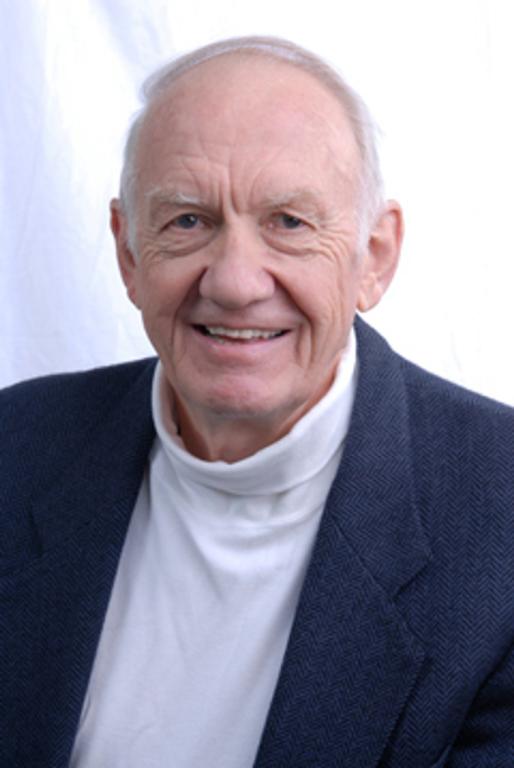
Today I learned that Gordon D. Fee (Regent College, Emeritus Professor) passed away recently. I never got a chance to talk to Gordon (I met him very briefly in passing at a conference), but he has taught and inspired me through his scholarship and academic leadership.
I was recently talking to a friend about my experience choosing a seminary for my Master of Divinity. Part of the reason I chose Gordon-Conwell Theological Seminary (2001-2006) was because in college I read How to Read the Bible for All Its Worth and one of the co-authors—Doug Stuart—was a professor at GCTS. The other author was Gordon Fee (who taught at GCTS from 1974-1986, before going to Regent College). I took several courses with Doug, but obviously I didn’t get a chance to study with Gordon. But he recorded several courses for GCTS’ continuing ed. institute, and I bought several course tapes and CDs (yes, audio cassette tapes!) and I would listen to his courses in the car. Later on, I bought some of Gordon’s Regent Audio Courses on MP3 (Galatians, 1-2 Thessalonians). What has always come through clearly in his voice is his passion for God and his commitment to studying Scripture with faith and care.
At GCTS, in my very first biblical interpretation course, our primary textbook was Gordon’s New Testament Exegesis. I had no idea what “exegesis” was—Gordon taught me. I loved the emphasis on method combined with what I already knew of Gordon’s passion for deep spirituality. After seminary, I worked at Hendrickson Publishers for a short while. I came to learn that Gordon published some of his key early works with them (like God’s Empowering Presence) and paved the way for pentecostals to make significant contributions to biblical scholarship.
As I left seminary and got my PhD, I had to think carefully about how I wanted to shape my career. Gordon was someone I admired—rigorous scholarship (he wrote his dissertation on textual criticism), but all of it came from and was directed back to worship of the triune God. I wish there were more seminary professors with Gordon’s zeal and fire!
One way that Gordon has shaped me is in his work as a commentary writer. I have read all of his commentaries. Maybe not “cover to cover,” but pretty close. He was meticulous, thoughtful about what’s helpful for pastors, and honest and forthright in some of the hard messages that folks today need to hear. I have tried to emulate Gordon’s spirit. While Gordon is known for his NICNT commentaries—all excellent—he wrote many others, including a concise, but very good NIBC volume on 1-2 Timothy and Titus. I find myself preferring Gordon’s little commentary to many of the technical ones.
Another way that Gordon impacted my work is in his advocacy and respect for women. In part, his scholarship encouraged me towards an egalitarian/mutualist position on Scripture, theology, and church ministry. He wrote this statement supporting Christians For Biblical Equality: “CBE is an organization that, without strident voice, is pursuing a path toward equality among men and women in the Christian church, where the Spirit’s giftedness for ministry is understood to precede matters of gender, and where husbands and wives are encouraged through mutual servanthood to work together to make their marriages as Christian as possible.” He was also a key contributor to the first edition of Discovering Biblical Equality—In fact, I return to his excellent essays not infrequently, and I owe a debt to his scholarship as I wrote my book Tell Her Story. (NB: You can listen to Gordon talk about the key Pauline texts on the subject through Regent Audio). Here is an important snippet from one of his essays (credit to Marg Mowczko for this quote).
“It seems a sad commentary on the church and on its understanding of the Holy Spirit that ‘official’ leadership and ministry is allowed to come from only one half of the community of faith. The New Testament evidence is that the Holy Spirit is gender inclusive, gifting both men and women, and thus potentially setting the whole body free for all the parts to minister and in various ways to give leadership to the others. Thus my issue in the end is not a feminist agenda—an advocacy of women in ministry. Rather, it is a Spirit agenda, a plea for the releasing of the Spirit from our strictures and structures so that the church might minister to itself and to the world more effectively.” [“The Priority of Spirit Gifting for Church Ministry”, Discovering Biblical Equality. ed. Ronald W. Pierce, Rebecca Merrill Groothuis, Gordon D. Fee. (Leicester: IVP Academic, 2005), 254.]
Ultimately, Gordon helped me to see that full support for women in ministry can be defended by and is affirmed in Scripture. I hope to carry on his advocacy in this matter.
Gordon intentionally spent most of his time standing in the gap between seminary classroom and pew. He processed and condensed esoteric scholarship to bless and benefit busy pastors. He never “dumbed down” scholarship, he was just a great communicator. I know he held his students to high standards, not least in the model of his own work.
Gordon—you will be missed and your absence mourned. Thank you for leaving a holy mark on many, including me.
NB: I conducted an online interview with Gordon in 2010 about his work on Galatians. If you want to read his brief comments, click HERE.












